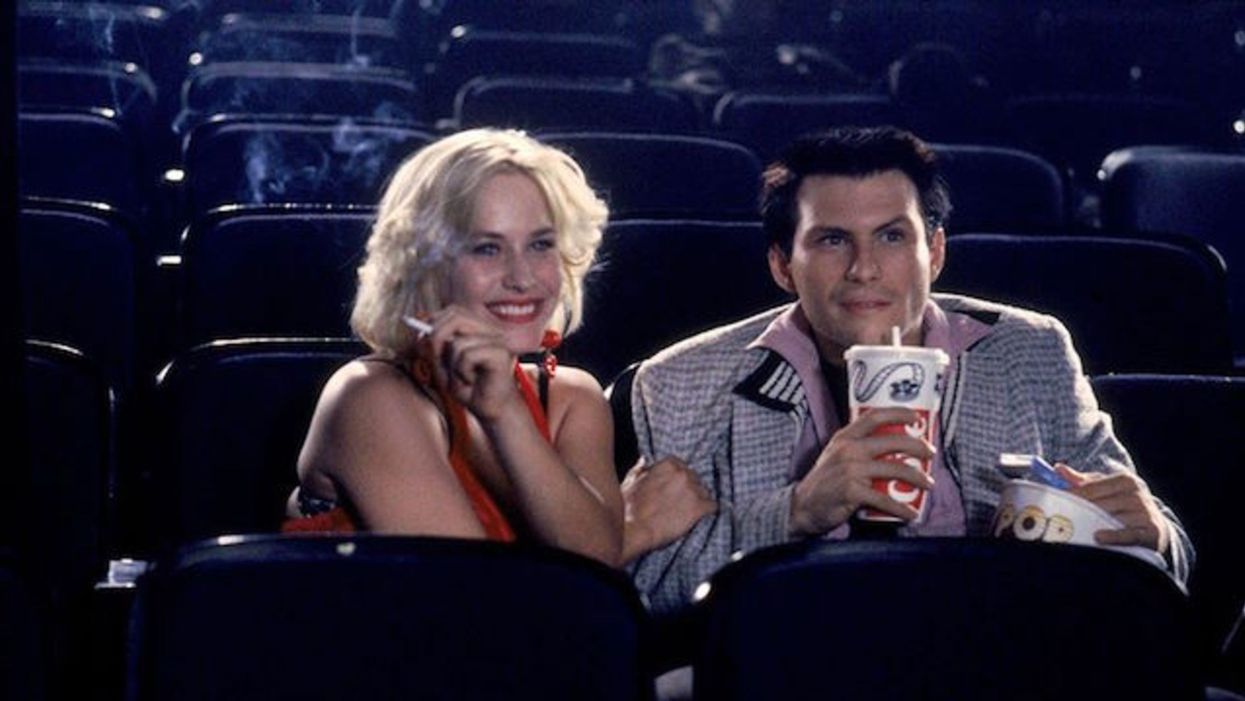The ‘True Romance’ Script Is the Blueprint for All of Tarantino’s Films
Quentin Tarantino’s script for True Romance holds important reference points for all of his work in the past 30 years.

It is hard to imagine the world without the humor and violence of Quentin Tarantino. All of his stories dive into niche genres and are deeply influenced by pop culture, alternate histories, and the visual dynamics of neo-noir. There is no denying that there is something special to Tarantino's screenwriting abilities, yet even the great creator himself isn't immune to following some tropes.
Every great artist has a piece of work that serves as the blueprint for their career. For Tarantino, his romantic crime script, True Romance, showcased the writer’s ability to create work that was timeless and forever relatable to Tarantino’s audience as well as create a blueprint that Tarantino would follow for the rest of his career.
Cindicate Productions breaks down how Tarantino’s first script launched what we know today as a Tarantino film.
While True Romance has much of the late Tony Scott’s style, the words and plot are quintessential Tarantino. As a writer, Tarantino can capture the entirety of a character through pop culture references that either exist in the real world or Tarantino’s altered reality.
Think of Jules’ (Samuel L. Jackson) and Vincent’s (John Travolta) conversation about a Quarter Pounder with cheese in Pulp Fiction, or the Reservoir Dogs"Like a Virgin" debate. True Romance opens in the same way with an Elvis-obsessed Clarence (Christian Slater) talking about pop royalty to anyone who will listen. This scene reveals which pop icon and their overwhelming influence will affect how a character perceives themselves in the story.
If the conversation isn’t about an actual pop figure, Tarantino isn’t afraid to make one up and distance the film from our reality.
In a Tarantino classic showdown between two characters in True Romance, later known as the Sicilian Interrogation, Vincezo’s (Christopher Walken) over-the-top performance emphasizes the exact intentions of the character. Clifford (Dennis Hopper) can either give up his son and probably live, or die knowing he protected his son from Vincenzo’s wrath.

There is a version of the Sicilian Interrogation in every single Tarantino film. Two or more powerhouse characters who are often played by magnetic actors face off with words while violence lingers in the background waiting for its cue. It’s the tension built into a simple conversation that highlights each character’s motives, boundaries, and unique character traits that make them a pop icon in their own right. As much as Tarantino is known for pop references and violence, he is a master at tense exchanges and has been since his debut on True Romance.
There are some other great points of similarity from True Romance to Tarantino’s other nine films. Scenes where characters talk out the details over a plan while eating at a diner, close-ups of feet, and the shortness of each scene are signature Tarantino moves that can be found in every one of his projects.
We could create a bingo card filled with the signature writing tropes created by Tarantino. It could be a fun game between you and your friends to see what other details can be found across the man’s 30 years of filmmaking.
Do you have a favorite Tarantino trope that is in every single one of his projects? Let us know what they are in the comments below!
Source: Cindicate Productions











